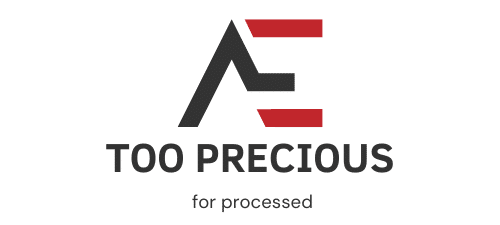What Are the Essential Dietary Supplements for a Growing Giant Breed Puppy?

When it comes to the growth and development of giant breed puppies, their diet plays a pivotal role. It’s no secret that these larger breeds require a unique dietary plan compared to their smaller counterparts. Their fast-paced growth warrants the need for a balanced diet enriched with the right proportion of essential vitamins, protein, and minerals, particularly calcium. As responsible pet owners, ensuring your dog enjoys a wholesome diet is a surefire way to boost their overall health while reducing the risk of potential health problems. This piece takes a deep dive into the essential dietary supplements needed for growing giant breed puppies.
Understanding the Nutritional Requirements for Giant Breed Puppies
It’s crucial to understand the unique nutritional requirements of your giant breed puppy. The American Kennel Club (AKC) classifies dogs such as the Great Dane, Mastiff, and Saint Bernard as giant breeds. These dogs can weigh over 100 pounds at maturity, and some male species can push the scale to even 200 pounds.
Lire également : How to Manage and Train a Dog with a Strong Prey Drive in a Multi-Pet Household?
Giant breed puppies grow rapidly during their first year, which means they need a diet that supports this quick pace of growth. It’s not just about the quantity of food but more about the quality. The food should be fortified with the right balance of essential nutrients including proteins, vitamins, and minerals.
A common misconception among many dog owners is the belief that more is better. However, when feeding your giant breed puppy, it is crucial to avoid excess. Overfeeding can lead to rapid growth, which may cause health complications, including joint problems.
Lire également : What Are the Signs of Stress in a Pet Snake and How to Create a Calming Habitat?
The Role of Proteins in Your Puppy’s Diet
Proteins are vital building blocks for a puppy’s growth and development. They are responsible for making various body tissues, including muscles and bones. As such, your giant breed puppy requires a high-quality, protein-rich diet to support their rapid growth.
The AKC recommends that at least 30% of your puppy’s diet should come from proteins. You can fulfill this requirement through high-quality commercial puppy foods that are specially formulated for large breeds. Some rich sources of protein include chicken, beef, fish, and eggs.
However, it’s worth noting that not all proteins are created equal. Some sources provide more essential amino acids – the building blocks of proteins – than others. You should strive to provide a variety of protein sources to ensure your puppy gets a complete set of these important nutrients.
Vitamins and Their Contribution to Your Puppy’s Health
Vitamins also play a vital role in your giant breed puppy’s health. They are essential for various bodily functions, including energy production, nerve function, and skin health.
There are two types of vitamins: water-soluble and fat-soluble. Water-soluble vitamins, such as vitamin C and B-complex vitamins, cannot be stored in the body, so they need to be included in your dog’s daily diet.
On the other hand, fat-soluble vitamins like vitamins A, D, E, and K can be stored in the body. While these vitamins are essential, they can be harmful in excess. Hence, it’s important to follow the recommended dosage in supplements or rely on high-quality dog food that has been formulated to meet the nutritional needs of large breed puppies.
Importance of Calcium to a Growing Giant Breed Puppy
Calcium is a crucial mineral for your puppy’s growth and development, particularly with regards to bone health. However, the dietary needs of a giant breed puppy are quite different from those of smaller breeds when it comes to calcium.
While small breed puppies might benefit from a diet high in calcium, giant breed puppies require a more balanced approach. This is because too much calcium can lead to skeletal problems in giant breed puppies.
The best way to ensure your pet is getting the right amount of calcium is to feed them a balanced, commercial diet specially formulated for large breed puppies. These foods contain the right proportions of calcium and phosphorus, another important mineral, to support healthy bone growth.
Feeding Your Puppy for Optimal Growth
When it comes to feeding your giant breed puppy, the goal is to promote steady, healthy growth. Rapid growth can put a strain on their developing bones and joints, which can lead to health problems down the line.
Introducing a balanced diet early on, and maintaining it through adulthood, is key to ensuring your dog’s optimal growth and development. Your puppy’s diet should contain the right balance of proteins, vitamins, and minerals, with special attention to calcium.
Avoid free-feeding and stick to portion-controlled meals. This will help prevent obesity, a common health concern in large breed dogs. Regular vet check-ups will also allow for necessary adjustments to the diet based on your dog’s specific growth pattern and health status.
Remember, each dog is unique, and what works for one might not work for another. It’s always best to consult with your vet or a pet nutrition expert when deciding on the best diet plan for your giant breed puppy.
Role of Fats and Fatty Acids in Your Giant Breed Puppy’s Diet
Fats and fatty acids are other essential elements in your giant breed puppy’s diet. Fats are the most concentrated source of energy for dogs, providing more than twice the energy of proteins or carbohydrates. They are necessary for normal reproduction, skin and coat health, body condition, and growth in puppies. Additionally, certain types of fats, known as essential fatty acids, are required for your puppy’s overall health.
Omega-3 and Omega-6 are the most known types of essential fatty acids. These cannot be produced by the dog’s body and thus must be included in their diet. Omega-3 fatty acids, found in fish oil and flaxseed, are great for promoting heart health and controlling inflammation. Omega-6 fatty acids, like linoleic acid found in vegetable oils and animal fats, are excellent for promoting healthy skin and a shiny coat.
However, it’s crucial to maintain a balance between these fatty acids as an imbalance could lead to health issues. Commercial puppy food for large breeds usually contains the right proportions of these fatty acids. If you’re considering supplementing your puppy’s diet with fatty acids, consult with your vet first to ensure it’s necessary and safe.
Developmental Orthopedic Diseases in Giant Breed Puppies
Giant breed puppies are susceptible to developmental orthopedic diseases due to their rapid growth. These conditions, such as hip dysplasia and elbow dysplasia, are often caused by nutritional imbalances, particularly excess calcium and phosphorus intake. Therefore, providing a balanced diet for your puppy is crucial to prevent these conditions.
There’s a strong link between fast growth rate in giant breed puppies and the development of orthopedic conditions. Feeding your puppy a diet that promotes slow, steady growth can help to minimize the risk of these diseases.
Commercial foods specially formulated for giant breed puppies usually have an optimal balance of nutrients to slow the growth rate without compromising the puppy’s overall health and development. It’s advised to feed these foods until your puppy reaches about 90% of their expected adult weight.
Conclusion – The Essential Dietary Strategy for a Giant Breed Puppy
Feeding a giant breed puppy requires careful attention to diet quality and balance. The key lies in providing the right nutrients – proteins, vitamins, calcium, phosphorus, and fatty acids – in the correct proportions according to your puppy’s stage of growth and body condition. Overfeeding and rapid growth, particularly in giant breeds, can lead to serious health problems in adulthood.
Commercially available puppy food for large breeds is typically formulated to meet these nutritional requirements. However, each puppy is unique and may have different nutritional needs. Regular vet check-ups are crucial to monitor your puppy’s growth rate and health status, and to make necessary dietary adjustments.
Remember, it’s not just about the size of the dog but the health of the dog. A well-fed, healthy dog is more likely to participate in dog sports, enjoy a good quality of life, and live longer. Therefore, investing time and effort in understanding and providing the right diet for your giant breed puppy is undoubtedly worth it. Your puppy’s diet is the foundation of their health and well-being, and a solid start can pave the way for a healthier adult life.
